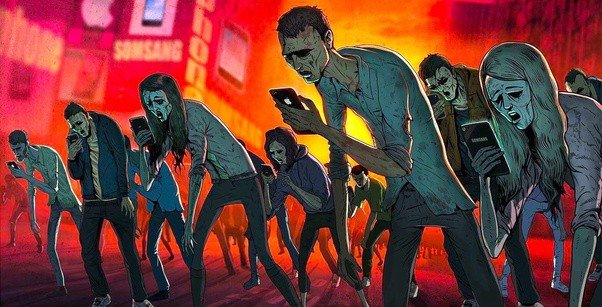Connecting Marketing Basics to Personal Social Media Use
We have learned over the years that companies, new and old, when releasing their product, service, or messaging do not have to attack from all fronts on social media. Your audience is not on every channel, your messaging can be effective on one platform versus another, and most importantly you do not have time for all of it. Users not being mindful of their time when using social media tends to be where trouble lies.
Mindfulness is often defined as the disposition or state of being attentive to the ongoing activities or experiences in a nonjudgmental and receptive way. The enhanced state of consciousness allows us to observe the internal and external state. Witnessing the current experience, rather than being immersed in it. It could be argued that those social media users that are showing less self control online, might be showing less mindfulness in general. The ease of access to social media creates difficulty for all in its path of staying on track, focused, and mindful of their time.
Just as a business should consider finding what platforms work best for its target markets, a personal user of social media can also analyze and critique what platforms are worth their time for what they are trying to accomplish on social media. The purpose of being active on social media can widely vary not only between separate people, but obviously even for the same user. When we are attached to our phone all day, it can be easy to waver in between being productive and distracted. Companies for the devices we use have created user controlled filters that can be set to potentially enhance productivity during certain times of day. Some filters that completely lock the user out of their device for a certain time frame as well. But all these tools and filters to control our usage comes down to a self control problem. Are the filters helping us build habit forming behavior for our approach to social media or ignoring a bigger problem?
As we gain more knowledge of social media, we can all I believe loosely agree that younger age groups have been exposed to generationally different and increased amounts of dopamine, while being attached to a device that gives you the knowledge of the world at your fingertips. It’s been an insanely powerful, fast moving experience. That begin said, the sheer amount of social sites that we thumb through in a day, notifications, and information that a human is exposed to has changed the game of teaching self control. Obsession with a seemingly harmless act like checking your phone from boredom with hope of their being something satisfying on the other side of the screen is creating a true self control issue.
I honestly find myself varying my purpose of my technology use drastically during the week. Somedays at school I am on top of it - no distractions, pounding through assignments and crushing material. Other days, completely useless. These tasks I have are still just as important as they were the day before, but I just get lost. Whether that be in a YouTube video, or a thread of low energy nonsensical Reels, I just lose focus and waste time. Annoyance follows once I finally wiggle my way out of it and get back on track, but it can just be so easy to tune out and not have to think.
Tying all of this together with a simple business concept I believe can help personal use. With the average social media user managing multiple accounts across platforms, there is an important question to ask. Which of these platforms is least beneficial to me, and can I gain more time and effectiveness from combining my efforts or moving on from a certain platform? Thinking of your personal use of social media as your personal brand imaging could begin to cut down on that wasteful activity. Pushing yourself to beneficially change your mindset and enhance your self control is common practice in any facet of life, so why not apply the same method of thinking to social media? Everyone is satisfied by different things, but I would argue that positive productivity online and offline could be seen to lead to a better mentality about the future and self.
Dropping some social media sites from my library has been relieving. Sure, I miss some things or news every once in while, but I believe that the overall benefit this far outweighs the time that was being wasted. Shedding dead weight off of our digital shoulders is a relief and I believe can lead to less stress, more meaningful interactions with people online and offline, and overall improved wellness.


